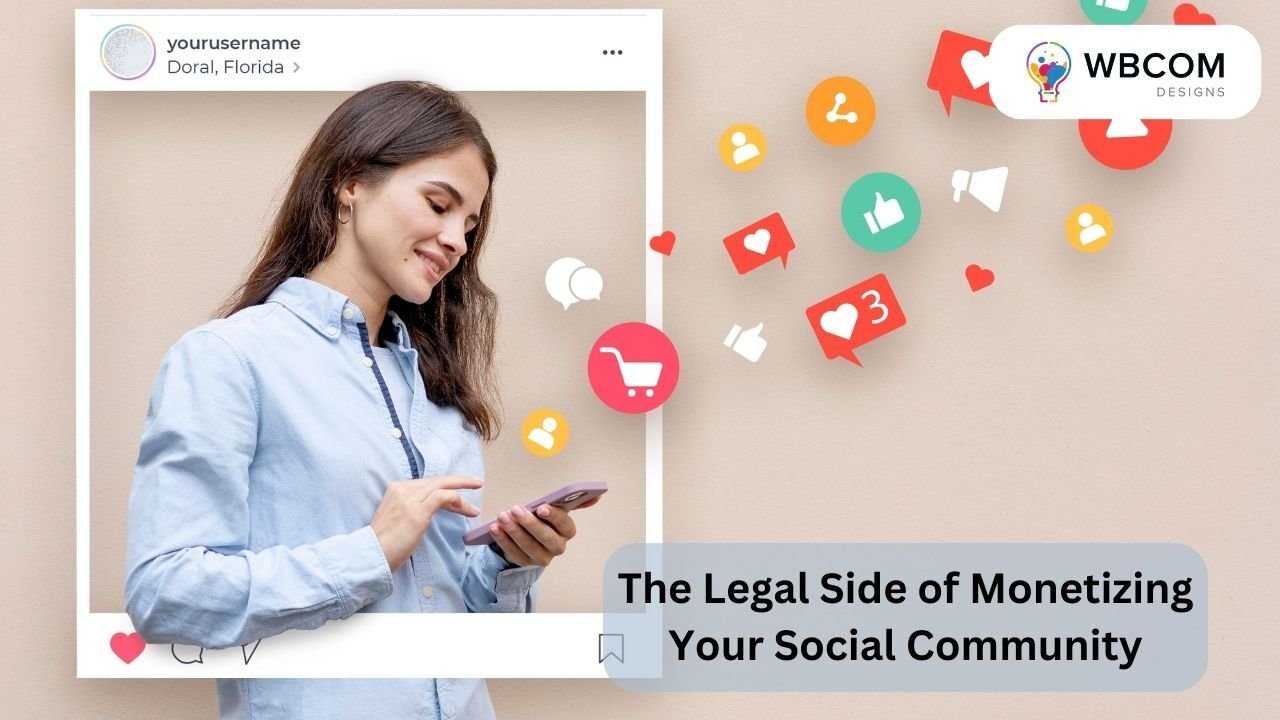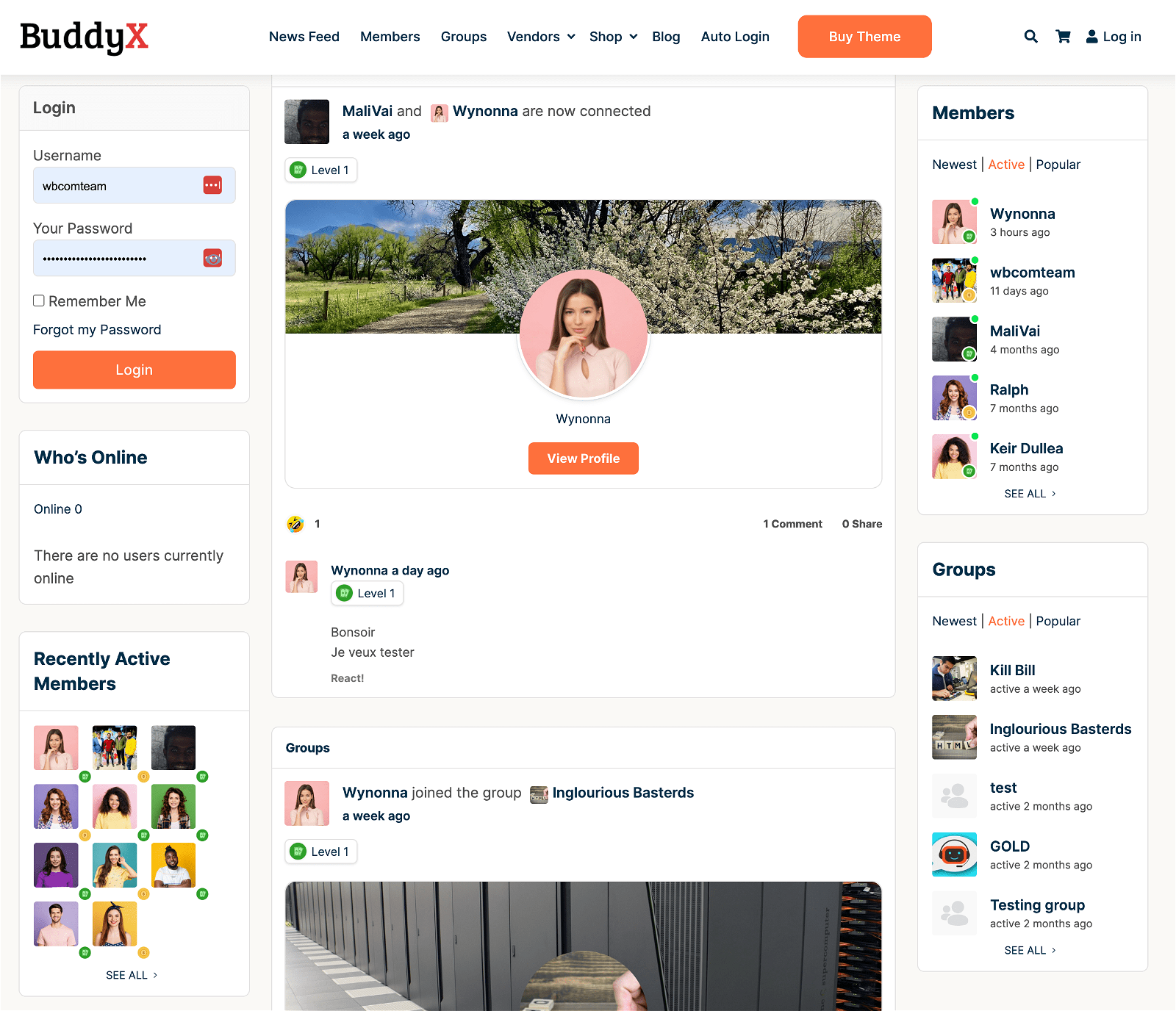Though often maligned, social media continues to play a valuable role in forming communities, uniting far-flung posters who share similar hobbies, interests, vocations, or perspectives. If you happen to be a leader or organizer of one of these groups, perhaps as an influencer of some kind, it’s only natural to seek ways of monetizing your social community.
As you do so, there are a number of considerations to keep top-of-mind, including considerations about the law. Social communities may fall under the scrutiny of any number of federal and state regulators, making it essential to spend some time thinking about the legal side of things.
Create a Community Website for Marketers to Join Today
Checkout BuddyX Theme Demos
Buy BuddyX Pro theme and Community Bundle Addons and create a highly engaging community platform Today !
Table of Contents
ToggleLegal Considerations for Monetizing Your Social Community
The question is, what legal considerations are most important for social community organizers? Here are a few of the most salient points.
1. Legal Structure
If you’re going to turn your community into a business endeavor, it only makes sense for you to structure it accordingly. There are a number of legal entities you can choose for your social community.
Establishing an LLC in Texas (or wherever you’re based) is fairly easy from an administrative standpoint, and requires just nominal filing fees. More to the point, the LLC structure provides personal liability protections, meaning a lawsuit or creditor won’t be able to come after your private bank account, your family’s home, or your personal automobile.
2. Online Privacy

Online privacy is an increasingly major concern, with more and more digital users expressing caution about how their information is harvested, stored, and used. As such, privacy laws have sprung up around the world, including many here in the United States.
These laws have obvious import for online businesses of any kind, and particularly for those that are seeking the involvement of private users. Be sure that you clearly articulate if, when, and how you collect and use personal data, and ensure that there is always an easy and obvious way for people to opt out if they so desire.
3. Child Protection- Monetizing Your Social Community
Privacy laws for adults are one thing, but laws meant to protect our children are altogether more serious. You have no way of knowing how many minors might be accessing your online community, so it’s important to keep these protections in mind.
This might be as simple as requiring parental consent for any minors to participate in your community. Again, clearly communicating your community’s standards is vital, protecting both yourself and your end users.
4. Laws About Testimonials- Monetizing Your Social Community
If your approach to monetization is to use your members’ testimonials or claims to help you sell affiliate products, then you’re bound by some of the FTC’s strict advertising criteria. Specifically, you’ll need to be very careful any time you employ testimonials or make particular claims about a product.
5. Some good rules of thumb
If you use any testimonials from members of your community, make sure you acquire their written consent.
If you make any specific claims about what a product can or cannot do, ensure that you have data to back it up.
Online communities can be imperiled by accusations of duplicitous advertising, so take these cautions seriously.
Also Read: Monetize Your Membership Website Today
6. Conduct and Harassment- Monetizing Your Social Community
Online bullying and harassment are incredibly common, and tragically hard to litigate or to stop. If someone feels bullied due to their involvement with your social community, it’s not impossible that you might find yourself on the receiving end of a lawsuit.
This is one area where having an LLC can provide you with a level of protection, but to avoid both legal and reputational peril, it’s also wise to have clearly-stated policies about community expectations. Also be consistent in dealing with violations.
7. Pornographic Material
It goes without saying that any kind of explicit material can be damaging to your community, and in some cases may even involve a violation of decency laws.
Will you be held legally responsible for community members who share inappropriate content? As a general rule, you’ll be alright so long as you take prudent measures to articulate standards, quickly moderate or remove offending content, and hold violators accountable.
Also Read: Guide to Web Design for Law Firms
Best Practices for Keeping Your Community Legally Compliant
As you keep all of these legal implications in mind, there are a few broad efforts we’d recommend for maintaining regulatory compliance.
1. Consult with an Attorney
Given the complex and ever-changing nature of the regulatory environment, it really makes sense to speak with a lawyer about your community, and to keep legal counsel on speed dial should a question ever arise.
2. Be Vigilant- Monetizing Your Social Community
You can also do some due diligence on your part, regularly reading up on changes to the laws impacting your online community.
3. Communicate with Clarity
Simply being direct in how you articulate your standards and policies, whether about privacy or about bullying, can go a long way toward keeping you in the clear, legally speaking.
4. Structure Carefully
Also be mindful about the legal entity you choose for your community, which can have significant implications for the level of legal exposure you face. Again, for most businesses, the LLC structure is best.
Monetizing a Community and Maintaining Compliance
As you consider different options to generate income from your social community, it’s important to think through all the legal issues that you might face. Remember to seek wise counsel, pay attention to changing laws, and always be clear and prompt in how you communicate with your community’s members.
Author Bio
Amanda E. Clark is a contributing writer to LLC University. She is a graduate of Eastern Michigan University and holds degrees in Journalism, Political Science, and English. She became a professional writer in 2008 and has led marketing and advertising initiatives for several Fortune 500 companies. She has appeared as a subject matter expert on panels about content and social media marketing. She regularly leads seminars and training sessions on trends and tactics in professional writing.
Interesting Reads:
Which State Is Better for WordPress Developers to Register a Company: Wyoming or Nevada?







